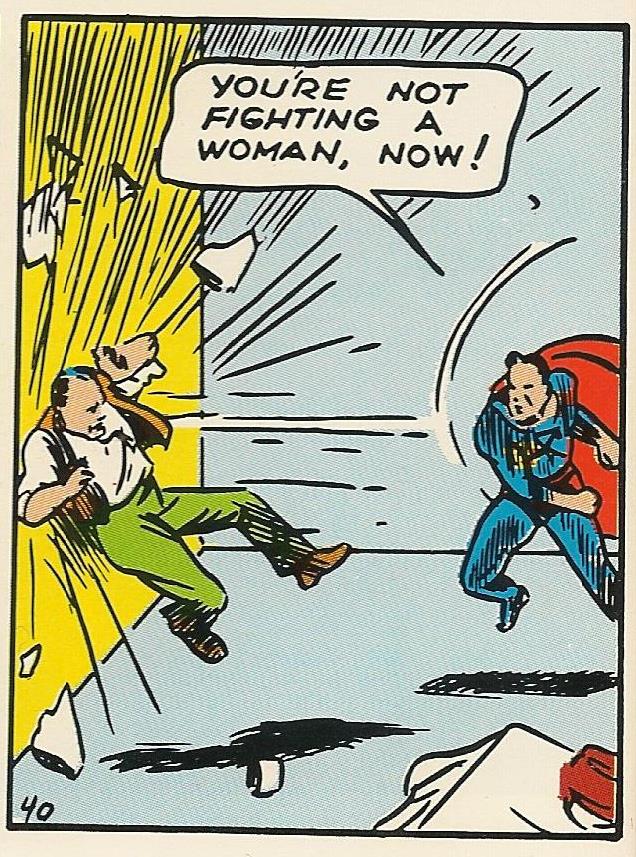Similarly, Superman II (whatever its other flaws might be) does not present Superman's killing of Zod, or Lois's killing of Ursa, as a morally ambiguous event or as a moral failing. The deaths of the Kryptonians is presented as a moral good to be celebrated. And almost nobody complains about Christopher Reeve's Superman killing someone -- because, again, Superman II rejects any sort of nihilistic tone, and instead embraces a combination of romance and adventure; the social order is a morally justified Apollonian order (it literally ends with Superman restoring the American flag to the roof of the Oval Office and telling a heroic character credited only as "The President" that he'll always protect the world), and the Kryptonians represent a Dionysian disruption to that order.
I thought the Kryptonians' deaths in "Superman II" should have been recognized as moral failings or questionable. And I believe Superman and Lois' actions should have been portrayed as such. I've heard about WB and the director's attempt to reverse their deaths. I found their attempts rather clunky. Wasn't there a scene in which a restored empowered Clark/Superman had returned to the diner where he had been earlier bullied by some customer, to get revenge by twisting the guy's arm?
All we see of the end of the Phantom Zone villains in Superman II, is that they disappear into a mist in Superman's Fortress. There's no sound of hitting water or ground: they just vanish. To assume that Superman and Lois (who knocked Ursa into the mist) killed them in cold blood once they were powerless is in no way consistent with the tone and previous events of the movie.
So . . . what happened to the trio when they fell, were pushed or punched into the chasm? After all, they were powerless. I do remember that in the original theatrical version; Zod, Ursa and the third guy were established as dead after the events at the Fortress of Solitude. In 2006, Richard Donner and WB changed the ending by turning back time (like he did in the 1978 movie) and erased the events of "Superman II". This left Zod and the others trapped in the Phantom Zone. Like I had said . . . clunky.
By contrast, the MCU movies do not present us with the kind of nihilistic tone that Man of Steel uses. Instead, they present us with a hopeful, optimistic tone in which Dionysian adversaries represent departures from a morally just, Apollonian order and whose deaths are morally justified rather than indicators of fundamental tragedy and failure on the part of Captain America. Indeed, Captain America: The First Avenger actively frames the killing of Hydra members and Nazis as a moral good to be celebrated.
I don't recall any hopeful or optimistic tone by the end of "The Winter Soldier" or "Infinity War". Or "WandaVision" for that matter. Even the ending for "Ant-Man 3" had a questionable tone. And I don't recall the tone for "Man of Steel" being "nihilistic", especially since the movie ended with Clark joining The Daily Planet, with he and Lois exchanging smiles as if they had a secret. Which they did. If you're going to referring to the destruction in Metropolis as nihilistic, one might as well do the same for the destruction featured in "The Avengers", "The Incredible Hulk", "Iron Man 2", "Infinity War", "Age of Ultron" . . . and the list goes on.
Last edited:



